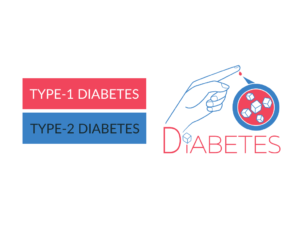Difference between Single and Twin Pregnancy Symptoms
A pregnancy is a joyous time for any woman, but it can come with its fair share of challenges as well. Understanding the symptoms and differences between a single pregnancy and a twin pregnancy can help expectant mothers better prepare for their unique journey. In this article, we will explore the various symptoms experienced during both types of pregnancies and highlight the key differences between them.
What is a Single Pregnancy?
A single pregnancy, also known as a singleton pregnancy, occurs when a woman is carrying just one baby in her womb. This is the most common type of pregnancy experienced by women.
Examples of Single Pregnancy Symptoms:
- Weight gain
- Morning sickness
- Increased urination
- Changes in breast size and tenderness
- Fatigue
- Mood swings
- Food cravings and aversions
- Stretch marks
- Backache
- Shortness of breath
What are Twin Pregnancy Symptoms?
A twin pregnancy occurs when a woman is carrying two babies. Twins can be fraternal (from separate eggs) or identical (from a single fertilized egg that splits into two). Twin pregnancies often have unique symptoms due to the increased demands on the mother’s body.
Examples of Twin Pregnancy Symptoms:
- Excessive weight gain
- Severe morning sickness (hyperemesis gravidarum)
- Increased appetite
- Enlarged uterus
- Intense fetal movement
- Visible fetal kicks and movements
- Extreme fatigue
- High blood pressure
- Greater risk of gestational diabetes
- Earlier feelings of fetal movement
Differences between Single and Twin Pregnancy Symptoms:
| Difference Area | Single Pregnancy Symptoms | Twin Pregnancy Symptoms |
|---|---|---|
| Weight Gain | Normal weight gain | Excessive weight gain |
| Morning Sickness | Mild to moderate morning sickness | Severe morning sickness (hyperemesis gravidarum) |
| Appetite | Normal or slightly increased appetite | Increased appetite |
| Uterus Size | Normal uterus size for single baby | Enlarged uterus due to multiple babies |
| Fetal Movement | Typical fetal movement | Intense fetal movement and visible kicks |
| Fatigue | Normal fatigue levels | Extreme fatigue |
| Blood Pressure | Normal blood pressure | Higher risk of high blood pressure |
| Gestational Diabetes | Standard risk of gestational diabetes | Greater risk of gestational diabetes |
| Feelings of Fetal Movement | Typically felt later in the pregnancy | Earlier feelings of fetal movement |
| Stretch Marks | Possible development of stretch marks | Increased likelihood of stretch marks |
Conclusion:
In conclusion, single and twin pregnancies have several differences in terms of symptoms experienced. While single pregnancies are more common and have a generally lower impact on the mother’s body, twin pregnancies come with additional challenges due to the increased demands placed on the mother’s physical and hormonal systems. It is important for expectant mothers to be aware of these differences and seek appropriate medical care and support throughout their pregnancy journey.
People Also Ask:
- Are twin pregnancies more difficult than single pregnancies?
- Do twin pregnancies have a higher risk of complications?
- Can you have different symptoms with each twin during a twin pregnancy?
- Do twin pregnancies have more severe morning sickness?
- Are there higher risks associated with delivering twins?
Twin pregnancies can be more physically demanding on the mother’s body due to the increased weight and hormonal changes. However, every pregnancy is unique, and the difficulty level can vary.
Yes, twin pregnancies carry a higher risk of complications such as preterm birth, gestational diabetes, preeclampsia, and growth restrictions.
Yes, it is possible to experience different symptoms with each twin during a twin pregnancy. Their positions and movements can vary, leading to different sensations and symptoms for the mother.
Yes, twin pregnancies are often associated with more severe morning sickness, including a condition called hyperemesis gravidarum. This can cause excessive vomiting and nausea.
Yes, delivering twins carries higher risks, such as the need for a cesarean section, preterm birth, low birth weight, and developmental complications.


